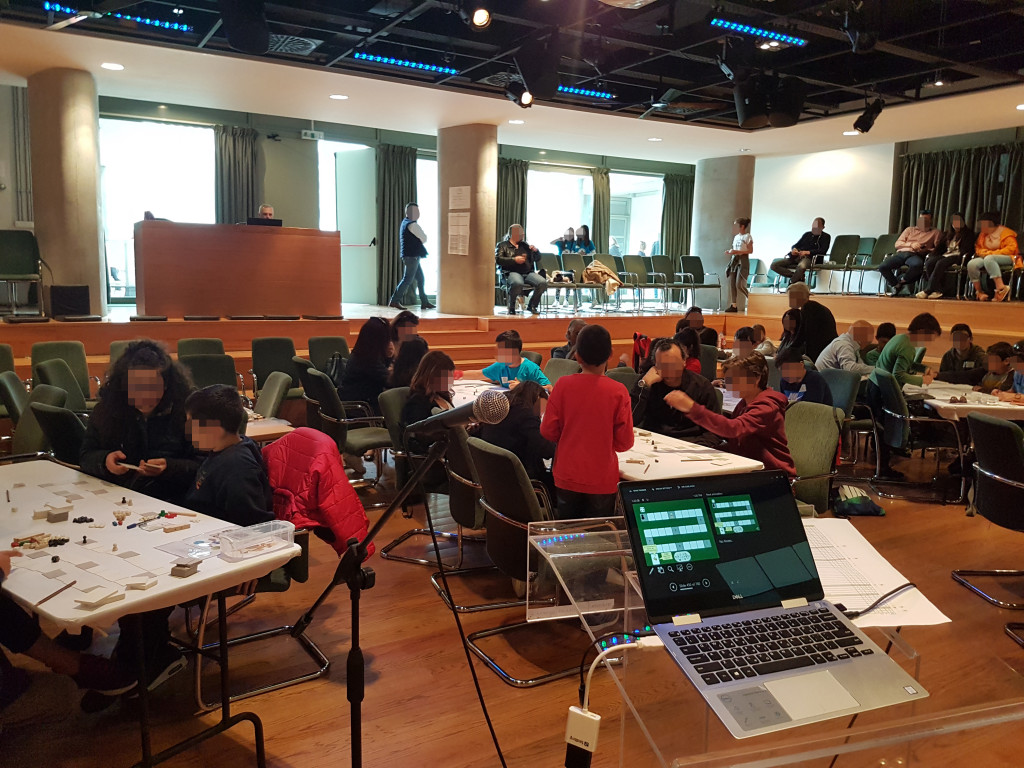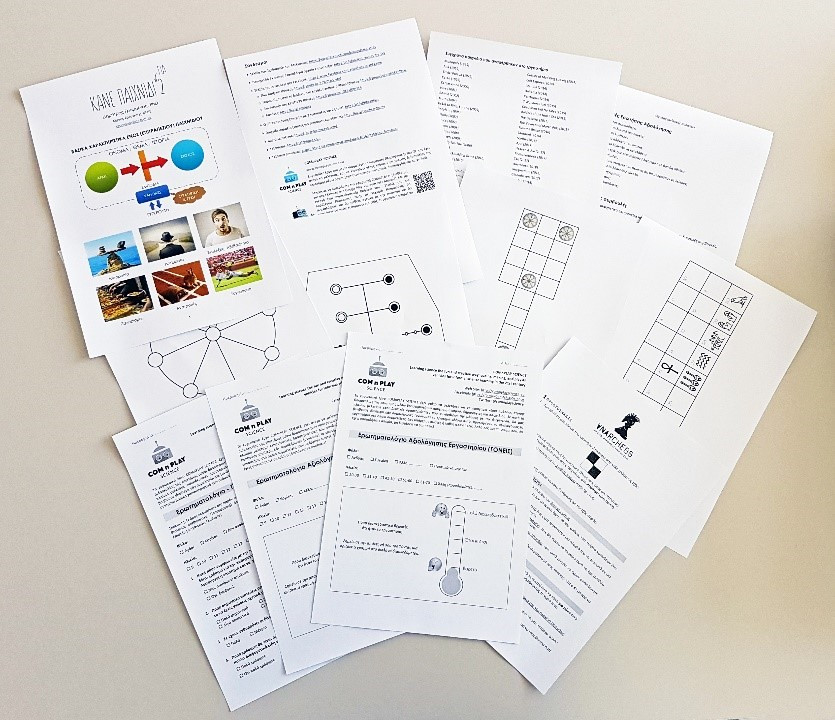Practice Description

Make a Game (for) 2
by FORTH added on 07 Nov 2019
|
Brief description:
|
The workshop is targeted to groups consisting of one parent / adult and 1-2 children 9+ years old. Participants, are introduced (through creative activities and a lot of playing) to the basic elements and steps for designing a 2-player board game and design their own game, while at the same time train their soft skills and computational thinking. |
|---|---|
|
Photos:
|
|
|
Countries:
(where the practice takes place)
|
Greece |
|
Cities:
(where the practice takes place)
|
Heraklion |
|
Organization name:
(running the practice)
|
FORTH |
|
Organization type:
|
Nonprofit |
|
Contact person:
|
Dimitris Grammenos |
|
Contact email:
(for further information and inquiries)
|
gramenos@ics.forth.gr |
|
Social media:
|
|
|
Related resources:
(e.g., web site, publications,media)
|
|
|
Participants’ age groups:
|
9 - 99 |
|
Indicative number of participants:
|
15 - 30 |
|
Oriented to a specific gender?
|
No |
|
Frequency:
(for the same group of participants)
|
Single-occasion |
|
Total duration:
(for the same group of participants)
|
3 hours |
|
Location:
(where the practice takes place)
|
|
|
What are the role(s) of the adult(s) running the practice?
|
|
|
During the practice, participants…
|
|
|
Participants work…
|
|
|
What type of materials do participants use?
|
|
|
Pedagogical approach:
|
|
|
Social justice/equity approaches:
|
|
|
Does the practice have (explicit or implicit) learning objectives?
|
Explicit: Board game design, design thinking, creative thinking, computational thinking |
|
Is the practice (explicitly or implicitly) connected to school curricula?
|
Yes, implicitly |
|
If connected in any way to school curricula, which subjects are covered?
|
|
|
Does the practice aim to have an impact on the engagement / interest of participants with a particular scientific topic, concept, phenomena, theory or career?
|
Yes: Get interested in and engage with board game design and computational thinking. |
|
Does the practice aim to have an impact on the attitude of participants with a particular scientific topic, concept, phenomena, theory, or career?
|
Yes: Understand and appreciate the creative and design aspects behind board games. |
|
Does the practice aim to have an impact on the behavior of participants related to a particular scientific topic, concept, phenomena, theory, or career?
|
Yes: Consciously think when making (design) decisions and being able to conceptualize the design space and all the available alternative options. |
|
Does the practice aim to have an impact on the development / reinforcement / practice of skills of participants?
|
Yes: Development and practice of computational thinking and (board game) design skills. |
|
Additional notes:
|
